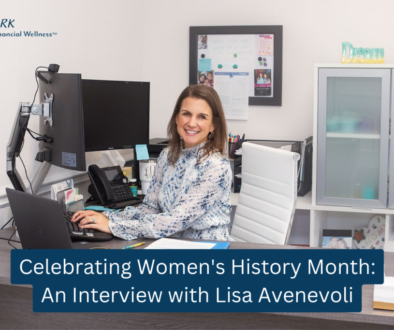How to Choose the Right Financial Advisor… for YOU
While background, experience and credentials are important, it is also crucial to seek someone that you are comfortable working with. Continue reading to get help finding YOUR Financial Advisor, not just a Financial Advisor.
Figure out what parts of your financial life are keeping you up at night
Are you seeking financial organization, with general guidance on when and how to save? Are you looking for an orderly way to pay down debt? Do you want to obtain financial independence? Are you planning for retirement? Are you looking for assistance managing your investments? Do you need help with life-transition planning (after divorce or death)? Are you trying to establish a college fund? Do you want to take charge of your finances and future, but aren’t sure where to start? Consider what you want to accomplish so that you can seek an advisor who specializes in helping you fulfill your objectives.
Learn about the different types of financial advisors
Many refer to themselves as Financial Advisors, implying they have the qualifications to provide valuable advice with your best interests at heart. That said, it is important to understand what differentiates someone who is legally bound to provide advice that is truly best for you, and free from conflicts of interest. To do this, learn the difference between a fiduciary advisor and a non-fiduciary advisor.
An advisor who has a fiduciary duty is legally required to work in your financial best interest before their own. Fiduciary advisors are also fee-only (as you will read below).
Non-fiduciary advisors may give advice that is “suitable”, albeit with inherent conflicts of interests. An example of this is an advisor who has access to two investment products that accomplish the same goal for the client, however, one pays a higher commission than the other, increasing the overall cost to the client. This is called the suitability standard – not always in the best interest for the client, but generally a “suitable” product given client goals and objective.
Look to work with CERTIFIED FINANCIAL PLANNER™ professional (CFP®). This designation signifies that the advisor has met stringent education and experience requirements to better serve their clients’ comprehensive financial planning needs. They are also held to an ethical standard by the CFP Board (https://www.cfp.net/).
Consider and understand how the Advisor gets paid
It is important to learn the difference between fee-only advisors, advisors who make money by commission and fee-based advisors.
Fee-only financial advisors earn money from the fees you pay for their services. This fee can be in the form of a percentage of the assets they manage for you, or a fee for a particular financial planning service they provide. These advisors are fiduciaries (as discussed above). They, in turn, have an inherent interest to manage your money with the goal of increasing your account value over time since they are paid based on this value each year.
Advisors who make money by earning commission do this through a third party. They will sometimes label themselves as “free” advisors as they don’t charge ongoing fees for services. Note that these types of advisors are not fiduciaries… they work as salespeople for brokerage companies and make money based on each product they sell. So, rather than charging an ongoing fee to manage an account or provide financial planning services, this type of advisor receives a payout each time they recommend a buy, sell or the purchase of a product (annuity, life insurance, etc).
Fee-based advisors charge both fees and commissions (a combination of the above two definitions) – this NOT the same as fee-only.
Every investor has different goals and objectives. How an advisor is paid does not make them good or bad. The take-a-way here is to have a clear understanding of pay structure to ensure it aligns with your goals.
Talk with your friends and family
Friends and family are generally the ones that most people go to for advice and recommendations, so it is important to see if they have an advisor they enjoy working with and why… OR, as importantly, if they had a bad experience with an advisor and why.
Research financial advisors
Whether you have decided you’d like to work with a fee-only, fiduciary advisor or a commissioned advisor, be sure to use those keywords in your Google search. For example, type in the Google search bar “fee-only, fiduciary advisors in St. Louis, MO” or “women-owned, fee-only, fiduciary advisor”. Use the right words to help you find the type of advisor you are looking for.
Check the advisor’s credentials
Check the background of your financial professional at BrokerCheck or AdviserInfo. Both are free tools that provide the background and experience of individual advisors and firms. These sites will also tell you any disciplinary action the advisor has received. The CFP Board also maintains a list of disciplined CFPs by state on its website.
Seek an advisor with whom you are comfortable and confident working with
While an advisor may have all the credentials and experience you desire, their personality may not mesh well with yours. Working with someone who empowers you to create financial purpose and embraces your core values is crucial to ensure you achieve your most fulfilling return on life.
What does this mean? Find someone you are comfortable meeting with to address your questions and concerns in a way that you understand. Far too many advisors like to hear themselves talk about how smart they are, rather than focusing on what is most important to YOU.
As comedian, Bill Engvall would say…
Here’s your signs that it may be time to make a change from your current advisor…

1) If your advisor talks during 90% of your ongoing meetings.
2) If you are falling asleep, doodling and/or feel your eyes glazed over during your advisor meetings.
3) If you walk out of the meeting and have no idea what you just discussed or what your advisor’s recommendations were.
4) If you are always worried about your money and investments, but are afraid to ask questions in this regard during your meetings.
5) If you completely dread your annual meetings with your advisor.
Meet with an advisor and don’t be afraid to ask questions!
Ask questions such as…
- What are your company’s values?
- Are you a fiduciary?
- How do you get paid?
- Are there any other fees that I have to pay?
- What are your qualifications?
- How often do we meet?
- Have you ever had any complaints filed against you by past clients?
- In managing my investments, what is your plan for my money in the event of high market volatility and/or a prolonged bear market?
- Do you have a formal succession plan in the event something happens to you and/or your team?
- What cybersecurity measures do you have in place to protect my personal information?
- How frequently will you communicate with me?
- How do you measure ‘success’ in a client relationship?
- What resources are available to me as a client?
- Will you collaborate with my CPA and Attorney?
Consider working with ARK Financial Wellness
At ARK, we believe that Financial wellness is the overall health and security of your finances, but it’s also the ways in which your finances commingle with your physical, mental and social well-being. It is a feeling of comfort and financial security for where you are today, as well as where you would like to be in the future. It means not losing sleep at night wondering how you’re going to absorb a financial shock, being on track to meet financial goals, and having access to the information and tools necessary to make good financial decisions.
Financial wellness represents a healthy approach to managing your financial life, including behaviors, attitudes, and knowledge. It is making sure that your finances have a positive reflection into all aspects of YOU.
Contact us today to schedule your no cost, no obligation wellness check to learn more about our values-based financial planning and wealth management services designed around your definition of health and wealth.
ARK has a FREE, printable checklist on this topic as well – click here to download!
References: https://www.cfp.net/
https://www.forbes.com/advisor/investing/how-to-choose-a-financial-advisor/
https://money.usnews.com/financial-advisors/articles/how-to-choose-a-financial-advisor
Conclusion
Maximizing your money requires discipline and a commitment to your financial goals. Remember, the key to maximizing your money is to be intentional with your spending and to make your money work for you. Keep in mind that achieving your financial goals takes time and effort, but with the right mindset and habits, you can achieve the life you want.
Disclaimer:
This work is powered by Advisor I/O under the Terms of Service and may be a derivative of the original.
The information contained herein is intended to be used for educational purposes only and is not exhaustive. Diversification and/or any strategy that may be discussed does not guarantee against investment losses but are intended to help manage risk and return. If applicable, historical discussions and/or opinions are not predictive of future events. The content is presented in good faith and has been drawn from sources believed to be reliable. The content is not intended to be legal, tax or financial advice. Please consult a legal, tax or financial professional for information specific to your individual situation.

This content not reviewed by FINRA
ARK Financial Wellness, LLC is an independent firm with advisory services offered through Blackridge Asset Management, LLC, a Registered Investment Adviser. Blackridge Asset Management is an SEC Registered Investment Advisory Firm.
ARK’s YouTube Videos
SECURE Act 2.0 Highlights
What is the SECURE Act? Lisa shares a brief summary of what it is, what the original bill included and how the changes in the SECURE Act 2.0 can help you save for a more successful retirement.
Click here to check out our blog post on this topic.
How to Start Out on the Right Foot in 2023
Lisa shares some questions to ask yourself and your loved ones which will help you to grow financially and personally in the new year.
What is a Fiduciary?
Lisa talks about what a fiduciary is and why its so important to work with someone who is held to a fiduciary standard when it comes to managing your money.
Read more about our Fiduciary Commitment here.
The Financial Future is Female
Traditionally, men have handled the finances. But at ARK, we are finding that more and more women, regardless of their relationship status- Single, married, divorced, widowed – are making the big financial decisions and are managing the day-to-day finances. Watch this video to learn more about the unique challenges and the many opportunities that women have when it comes to our finances. Check out the blog post on this topic also.
Planning for Your Future…and for Your Today
We find that clients sometimes struggle with doing what is needed to save for their future needs and goals, but also having enough leftover to live for today. Watch this video to find out what it means to live for today.
How Much Should I be Saving and Spending at Age 40?
“Where should I be – financially – at age 40?” Or any age for that matter? We get this question a lot at client meetings. While Google and benchmarks can help you get started, they can’t give you the answers you need for your particular situation, lifestyle and goals. Watch more to get tips on how to save and spend your money wisely at any age!
Real vs Fake Financial Advisors
Set the bar high, and do your homework in seeking a Financial Advisor to aid in making crucial financial decisions for you and your family. Get a good understanding of their background, education, experience and services by using free online tools to help you differentiate real from fake Financial Planners/Advisors!
If you have more questions about this, visit our FAQs page.



